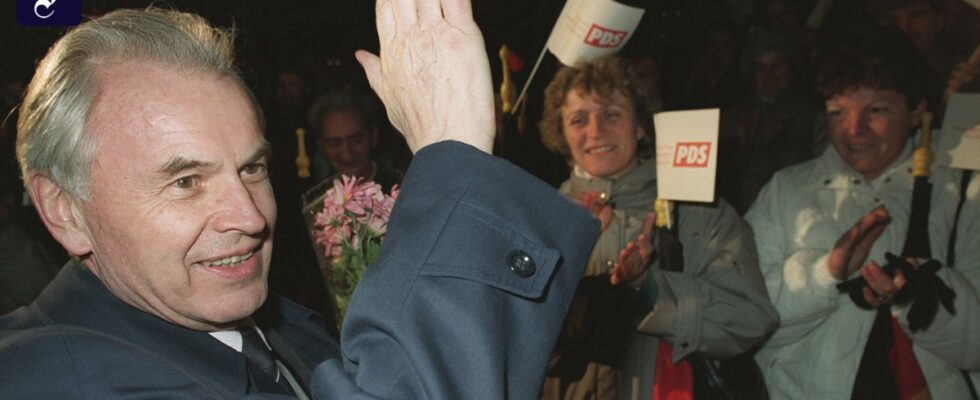Hans Modrow’s historic hour lasted about three months – from the turn of November in 1989 to the only free elections to the People’s Chamber in the GDR on March 18 of the following year. During this time, Modrow, who had previously been First Secretary of the SED in the GDR district of Dresden, ran the affairs of state of the collapsing GDR.
Those were the weeks after the mass flight, mass demonstrations and the fall of the Wall when the GDR regime made a last attempt at stabilization and when the new leadership, which like its predecessors came from the SED, gradually had to realize that they were meeting the wishes of the vast majority of the (Eastern ) Germans could no longer offer an attractive counterpart after reunification.
In the eyes of many, however, Modrow moderated this transition with the appearance of a beacon of hope. In 1958 he had become a member of the People’s Chamber, the GDR pro-forma parliament, and three years later first secretary of the party leadership for the district of Köpenick; from 1967 he was a member of the Central Committee of the SED.
More than 1000 arrests in Dresden
Since the 1970s, when he was sent to Dresden, his career in the Socialist Unity Party came to a standstill. Modrow sometimes set a different, more modest tone than the leading Berlin SED comrades, and later also distanced himself less from the reform course of the Soviet head of state and party, Michael Gorbachev.

Hans Modrow
:
Image: dpa
In the turbulent days that preceded the fall of Erich Honecker in October 1989 and the fall of the GDR, Modrow took no less harsh action than the leadership in Berlin; more than 1,000 arrests were also made in Dresden. In the reformed GDR leadership, Egon Krenz took over the leadership of the party. Modrow, on the other hand, who was only admitted to the GDR Politburo at this point in time, succeeded Willi Stoph as Prime Minister – the “old” People’s Chamber, which was still elected according to the rules of the regime, confirmed him in this office almost unanimously; only Margot Honecker voted against him.
Modrow’s efforts to stabilize the GDR, if possible under the leadership of a reformed socialist party, became irrelevant at the latest when West German Chancellor Helmut Kohl visited Dresden in December 1989. Kohl was welcomed and celebrated by the people of Dresden as a harbinger of the coming national unity. Modrow’s government had two months to mitigate the foreseeable consequences for his party and for the residents of the GDR. One of the ways he did this was by creating a law that made it possible for homeowners who did not own their property to buy it cheaply.
For the unification that took place in October 1990, Modrow had the term “connection” at hand. Until 1994 he was a member of the Bundestag for the SED, now called PDS, in the common Germany, after which he moved to the European Parliament for ten years. He served his party, now known as “Die Linke”, as chairman of a council of elders. In this capacity, almost a year ago he assessed the Russian attack on Ukraine as a possible “internal civil war between the forces in the new eastern states and fascist elements in western Ukraine”. Hans Modrow died on Sunday at the age of 95.
